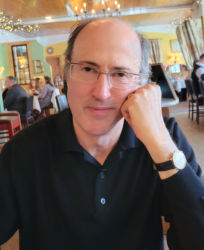Washington, D.C., 10:00 p.m., Tuesday, May 22, 2012
Late in the evening on Tuesday, May 22, 2012, the advocacy team of the Washington, D.C.-based Natural Products Association (NPA) became aware that longtime natural products industry opponent, U.S. Senator Richard Durbin (D-IL), planned to introduce an amendment that could severely damage the natural products industry—as an attachment to an FDA user-fee bill shortly being considered by the Senate.
A bit of history first. Durbin is one of the few members of Congress serving today who was also serving in 1994 during the debate leading up to our industry’s foundational legislation, the Dietary Supplement Health and Education Act of 1994 (DSHEA). At the time, Durbin opposed the regulation—which protects manufacturers’ right to market natural products, and your free-speech right to inform the public about the health benefits of same—and he continues to oppose DSHEA today.
Could there be a connection between the Illinois Senator’s unflagging adversarial posture toward our industry and the fact that a major constituent, the American Medical Association, is based in Chicago? You decide.
War Room Strategy
On hearing the news that Durbin intended to seek a vote on his amendment, the NPA advocacy team quickly set up a war-room strategy meeting that lasted until 1:00 a.m., Wednesday morning. NPA reached out to the four other industry associations* it routinely cooperates with to coordinate an action plan. Because of the 11th-hour nature of the threat, the team decided it best, before seeking grassroots constituent action, to first contact all Senate offices to ensure that every senator knew of our industry’s opposition to the amendment. At the same time, Durbin and his staff were also contacting senators to “whip” support for the amendment, and several times during the day, Durbin took the Senate floor to persuade fellow senators to vote in favor.
Counting Votes
Guiding their actions throughout the day, NPA’s advocacy team kept track of individual senator’s reactions to the Durbin amendment, essentially creating a vote scorecard. Three key senators were against the amendment: our long-time industry champion, Senator Tom Harkin (D-IA), who originally helped develop and pass DSHEA in 1994, and who also happens to now be chair of the Senate Committee on Health, Education, Labor and Pensions (HELP), the committee in charge of preparing the FDA user-fee bill for a Senate vote; Senator Michael B. Enzi, (R-WY), ranking HELP committee member; and Senator Orrin Hatch (R-UT) who along with Harkin in 1994, helped shepherd DSHEA through Congress. Harkin and Enzi agreed that Durbin’s amendment needed separate consideration, and should not be tacked onto another bill without debate. Hatch, not a member of the HELP committee, took to the Senate floor to speak against the Durbin amendment.
Late Wednesday evening, as they were wrapping up the direct Senate contact efforts, the NPA advocacy team along with the four other associations sent word out to the grassroots constituents to contact their senators to oppose the Durbin amendment. NPA members alone generated between 2,200 and 2,300 e-mails. On Thursday, Durbin’s amendment failed by a vote of 77 to 20.
More Wrinkles
Adding to the complexity, Senator Rand Paul (R-KY), also offered a separate amendment, which would have provided more industry freedom than the Durbin amendment, but also would have opened up DSHEA for debate. This may be one of the most under-appreciated aspects of advocating for and protecting our industry. Under normal Congressional circumstances, legislation takes years to develop and pass into law, typically a decade or more, and getting DSHEA passed in 1994 was no mean feat. It was primarily due to the deep influence and long-standing personal relationships in the Senate of Harkin and Hatch, and their parliamentary skills—DSHEA was passed at midnight under special rules known as “unanimous consent”—that we have been able to enjoy its protections for the last 18 years. And, as anyone with a passing interest in Congress—or any taxpayer, for that matter—knows, laws get revisited from time to time.
Who’s Got Your Back?
Suffice it to say that 2012 is not 1994, and we cannot be certain of a favorable outcome should DSHEA be opened up for a broad and potentially very disruptive rewrite. Put another way, as a constituent, which senators or congressmen can you pick up the phone and call to chitchat about their support for our industry? None? Think you’re safe?
The reality is that, for more than 75 years, we’ve had an association dedicated solely to advocating for the natural products industry in Washington. We have relied on NPA to do the gritty, frontline political work while we, sometimes literally, are sleeping.
Along with sex and religion, in polite company, one doesn’t normally discuss politics. But since we share a political interest in preserving our natural products industry, I’ll indulge myself in a political comment now: What’s your reason for not joining NPA? To join, go to www.npainfo.org. WF
* The four industry associations NPA regularly coordinates with are the American Herbal Products Association (AHPA), the Consumer Healthcare Products Association (CHPA), the Council for Responsible Nutrition (CRN) and the United Natural Products Alliance (UNPA).
Jay Jacobowitz is president and founder of Retail Insights®, a professional consulting service for natural products retailers established in 1998, and creator of Natural Insights for Well Being®, a comprehensive marketing service designed especially for independent natural products retailers. With 35 years of wholesale and retail industry experience, Jay has assisted in developing over 1,000 successful natural products retail stores in the U.S. and abroad. Jay is a popular author, educator, and speaker, and is the merchandising editor of WholeFoods Magazine, for which he writes Merchandising Insights and Tip of the Month. Jay also serves the Natural Products Association in several capacities. He can be reached at (800)328-0855 or via e-mail at jay@retailinsights.com.
Published in WholeFoods Magazine, July 2012










